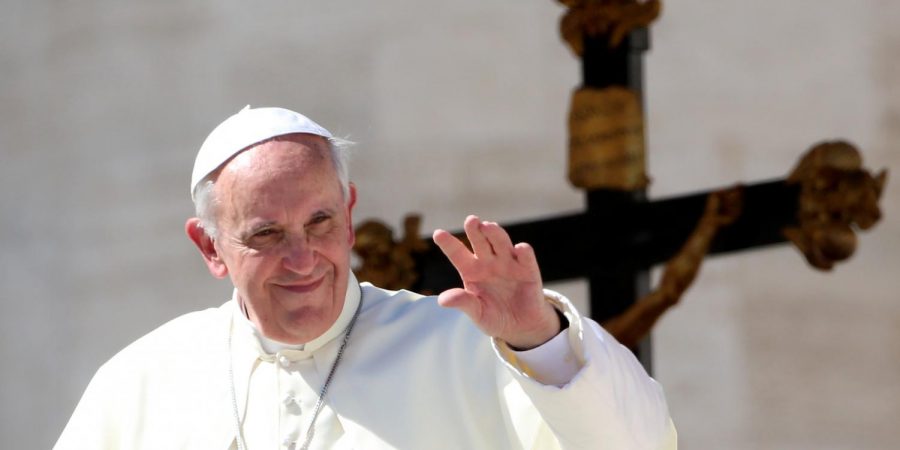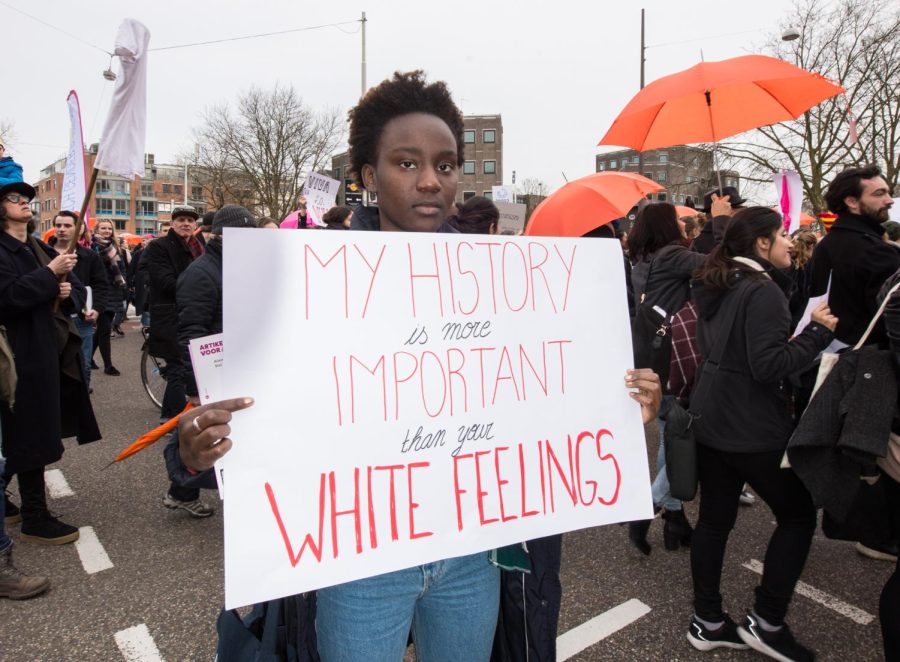Let me begin by saying I love Marquette. I am not Catholic, but I appreciate the values that Marquette, as a Catholic, Jesuit institution, encourages: service, unity and compassion, among other things.
That being said, because I am not Catholic, there are certain aspects of being part of a Catholic university that are frustrating. Many of my values fall outside the realm of traditional.
I completely accept some ideas as being in opposition to Catholic beliefs. However, the university perspective makes some of my other ideas seem as if they are in opposition, when in reality, they don’t have to be. This is the case for my status as a feminist.
Among the psychedelia of the early ’60s was Betty Friedan, author of “The Feminine Mystique.” Entirely radical to the time period, the book was a catalyst for sparking what is typically referred to as the second wave of American feminism.
While the first wave of American feminism was based in legal advancement – the right to vote – the second wave was based in existentialism. The big question posed in Friedan’s novel asked why a woman’s role in society was so cut and dry. Simply put, “is this all there is?”
In other words, why is it assumed that women are only capable of raising children and keeping the house?
While it’s obvious that the world has changed significantly since 1963, things are still in an uncomfortable place for feminists.
Being at a Catholic Jesuit institution in 2015 is a unique experience. We get to see the modern world collide with a traditional dogma. The interaction is often positive. For example, Marquette offers LGBTQ Masses. That’s not something you would have seen in 1963.
But where is the line drawn? The church can’t abandon all tradition in an attempt to appease the trends of the modern world, but it also can’t ignore the modern world and the ideas that have developed.
This stalemate causes rifts between old and new and is a large reason why the church is considered traditional and modern movements radical. It is also the reason many of people have the idea that Catholicism and feminism are in opposition.
Gretchen Baumgardt, a professor in the theology department who has a specific interest in feminist theology, is a Catholic and a feminist. She said, “feminism is an umbrella term.”
“Theological literacy is low,” Baumgardt said. “There is a lot of misinformation about both feminism and theology. Rather than being mutually opposed, they should be mutually informed.”
Baumgardt’s main concern is the language used when talking about feminism as it relates to the church.
“Oftentimes people get hung up on the most controversial issues, like women’s ordination and abortion. To reduce feminist theology to two issues loses sight of all feminism has done to make profound social changes for women around the world,” Baumgardt said.
Boston College professor Cathleen Kaveny wrote in an article, “If feminism is ultimately about affirming the dignity and well-being of women, the Roman Catholic Church as a whole is a feminist church in many crucial ways.”
Pope John Paul II’s famous proclamation, “Io sono il Papa feminista,” or “I am the feminist pope,” introduced his ideas, calling for a “new feminism.” During his papacy, he published “On the Dignity and Vocation of Women.”
However, Kaveny also admits that many people are uncomfortable with the “easy association of feminism and the papacy.”
Unfortunately, the language used to discuss feminism, and the language used to discuss Catholicism rarely align. Because so many people associate feminism with radicalism, they turn away from it out of fear of being considered radical themselves.
As Baumgardt stated, feminism is an umbrella term. The connotation of the word itself suggests that everyone who identifies as a feminist believes the same thing. This line of thinking then completely dismisses the difference between secular feminism and spiritual feminism.
At its core, feminism is about promoting the dignity and equality of women, but that can mean different things for different people.
Feminism is not saying all women should take birth control, get abortions, work as CEOs or never have children. It’s saying that women have dignity and deserve to be honored in the same way that men are, and as such, should be able to make choices based on their values and goals.
A woman can be a Catholic stay-at-home mother and be a feminist.
A woman can be a workaholic CEO and be a feminist.
A woman can be 17 and pregnant, choose to have an abortion and be a feminist.
A woman can be 17 and pregnant, choose not to terminate the pregnancy and be a feminist.
A woman can believe that she should be able to be ordained by the Catholic church and be a feminist,
and a woman can believe that women should not be ordained by the church and still be a feminist.
Going back to Baumgardt, saying that feminism and Catholicism should be mutually informing rather than mutually opposed, the ultimate goal for the relationship between feminism and the church should not be to convince anyone of any specific values. Rather, it should be understood that just because there is a disagreement does not mean there can’t be acceptance.
As Baumgardt puts it, “Unity does not necessarily equate to uniformity.”










